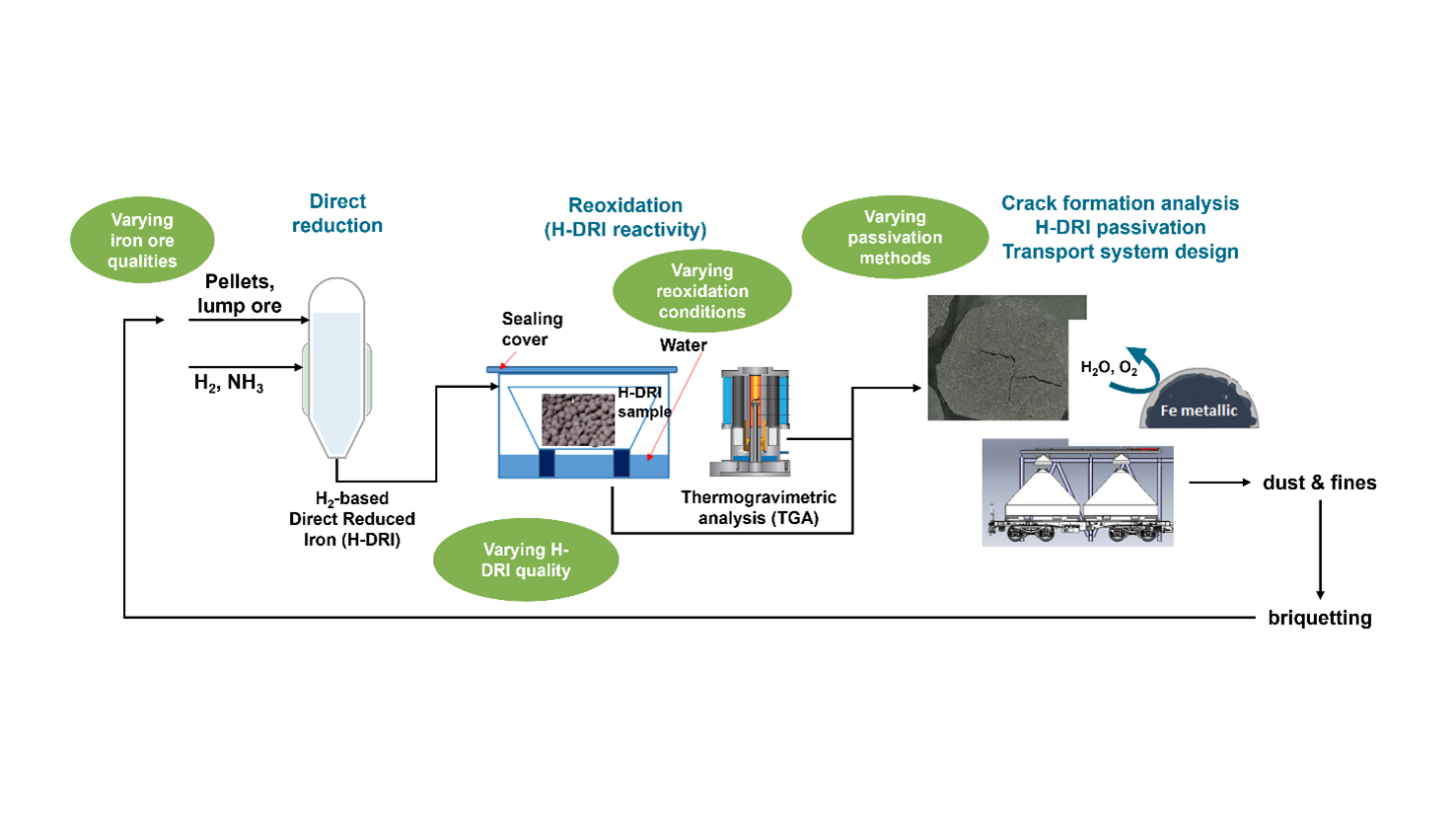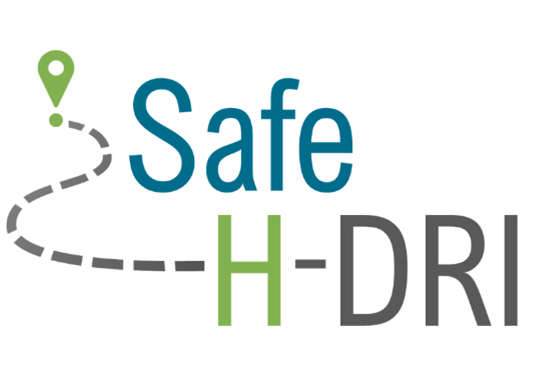Safe H-DRI - Safe transport of DRI from H2-based direct reduction considering quality-related H-DRI reactivity, stability, the efficiency of passivation methods and health and recycling aspects
 ©Safe H-DRI project consortium
©Safe H-DRI project consortiumInitial situation:
The project focuses on overcoming key challenges in the safe handling, transport and storage of H-DRI and minimizing risks such as self-heating, ignition and explosions. By researching innovative passivation methods and the reuse of H-DRI fines, safety, sustainability and efficiency shall be improved throughout the steelmaking value chain.
Project targets:
- Development of innovative solutions to handle H-DRI produced using hydrogen.
- Development of methods for the reuse of H-DRI fines
- Contribute to positioning the EU steel industry as a global leader in low-carbon technologies.
Innovative approaches:
BFI has the following innovative tasks in the project:
- Investigation of different iron ore qualities for production of H-DRI pellets (reduction)
- Agglomeration of selected fines feedstock to produce small-scale, pellet-sized samples
- Passivation trials in the hot state e.g. by carburisation with carbonaceous gases
- H-DRI high temperature reoxidation trials in lab/technical scale at different temperatures and inertisation conditions
Benefits for the industry:
- The efficiency of passivation methods to prevent hazards and risks from reoxidation (self-heating, ignition, local explosions) during transport and related handling will be quantified.
- The innovative knowledge regarding H-DRI behaviour will contribute to an updated transport system standardization and extend existing or new transport guidelines.
Further information about the project:
Project duration: 1.10.2024 bis 31.03.2028
Funded by:


Funding reference
RFCS Project Nr. 101150482
Your contact persons

56 Alexa Kala, B.Eng.
+49 211 984-92-225
alexa.kala_at_bfi.de

37 Dr. Ralf Wolters
+49 211/98492-573
ralf.wolters_at_bfi.de



